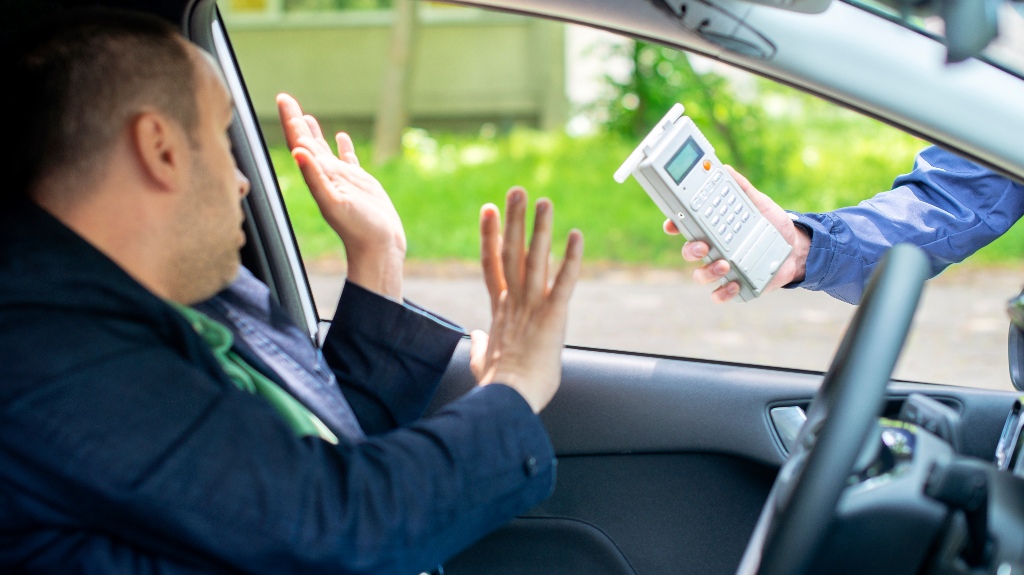
In Texas, driving while intoxicated (DWI) is a serious offense. This is when a driver operates a vehicle with a blood alcohol concentration of 0.008% or higher, or if they are visually impaired by drugs or alcohol. Often, when drivers are pulled over on suspicion of DWI, officers will often ask drivers to perform field sobriety tests or chemical tests. If a driver is under the influence, they may think that refusing a DWI test will get them out of the charge when in reality, that’s not the case. In this blog, we will be covering what happens when you refuse a DWI test in Texas by explaining the penalties you may face, and explain how the law views test refusal.
Understanding DWI Testing in Texas
When a driver is stopped in Texas for suspicion of DWI, there are a few different tests that officers may perform:
- Breath Test: This is conducted by using a breathalyzer, which measures the driver’s blood alcohol concentration to determine if they are over the legal limit of 0.08%.
- Blood Test: A blood sample may be taken to measure BAC or detect drugs in the driver’s system. This test is more accurate than a breath test, but it requires a warrant if the driver does not consent.
- Field Sobriety Tests: Officers often use physical coordination tests, such as walking in a straight line or following an object with their eyes, to determine a driver’s level of impairment.
In Texas, the state operates under implied consent laws, meaning that by receiving a driver’s license and operating a vehicle on the road, you automatically agree to chemical testing if you end up being arrested for a DWI.
Legal Rights and Responsibilities
During a DWI stop in Texas, it is important to be aware of your rights and responsibilities.
When pulled over for suspected DWI, you have certain rights under Texas law:
- Right to remain silent: You are not required to answer questions about where you’ve been or whether you’ve been drinking.
- Right to refuse field sobriety tests: You can decline to perform field sobriety tests, such as walking in a straight line or standing on one leg, without immediate penalties.
- Right to refuse a roadside breath test (portable breathalyzer): These tests are often less reliable and can be refused without triggering automatic penalties.
If you get arrested, you may face penalties for refusing an official blood or breath test.
Immediate Consequences of Refusing a DWI Test
Due to Texas’s implied consent law, refusing a breath or blood test can lead to serious consequences. One is an administrative license suspension through the Texas Department of Public Safety (DPS). If this is a first-time refusal, the license will be suspended for 180 days, whereas if it is a subsequent refusal, meaning the individual has refused a test within 10 years, the license will be suspended for 2 years.
If you are later convicted of a DWI, refusing a test will come with even more penalties such as:
- Longer jail sentences
- Higher fines
- Increased difficulty in defending against the DWI charge
In some cases, refusing a test can lead to more severe consequences than submitting to one and failing.
Know Before You Refuse
Refusing a DWI test in Texas can lead to even harsher penalties than if you submit to them. It is important to be aware of your rights and responsibilities as a driver in Texas, including Texas’s implied consent law. By being aware of your rights and responsibilities, you can be sure to act appropriately and not receive any more penalties than you might already be with a DWI charge.
If you or someone you know is facing a DWI charge, it’s crucial to consult a knowledgeable attorney who can guide you through the process and build a strong defense. Contact C.L. Swisher Legal Group today for a free consultation. We are here to answer your questions and guide you through the legal process.

